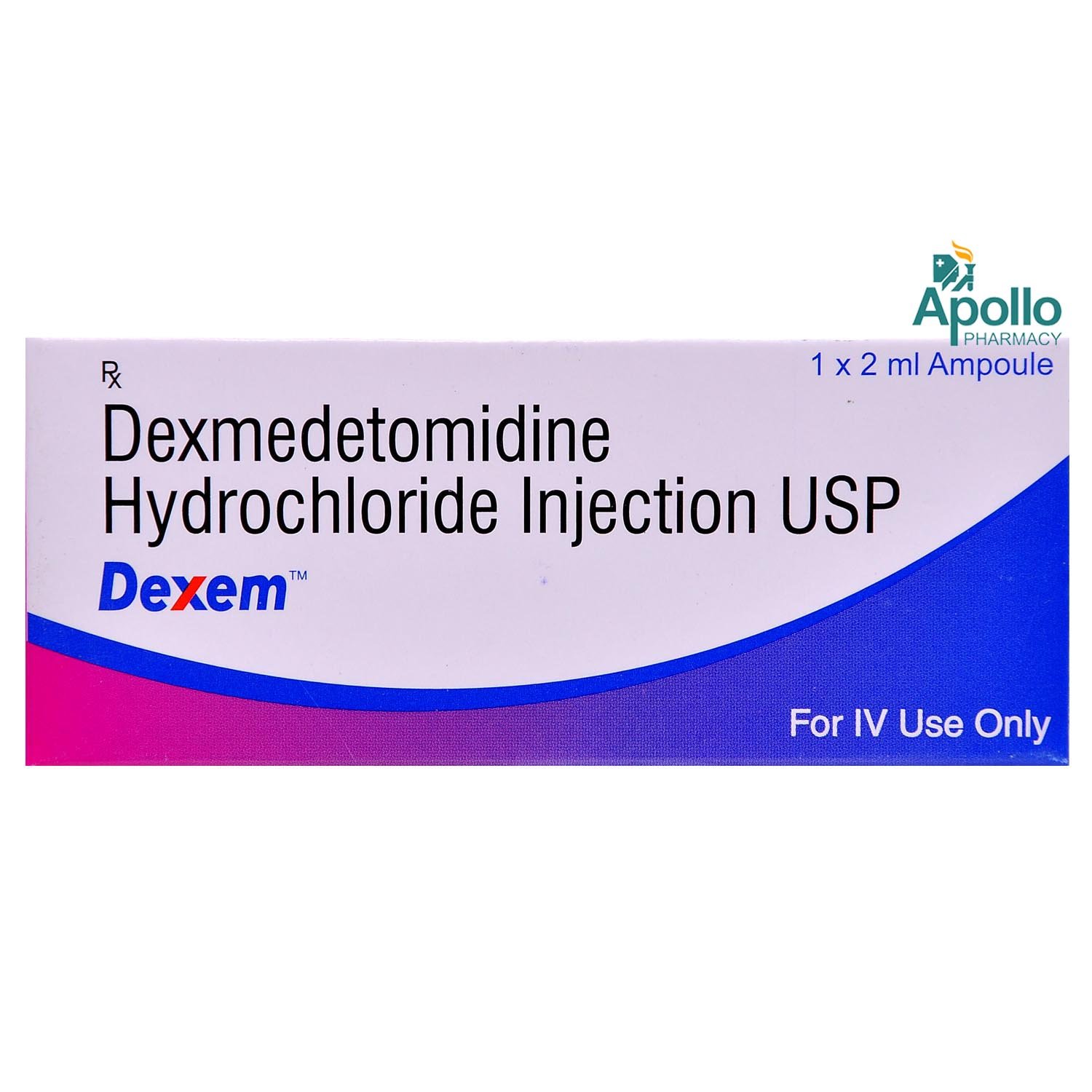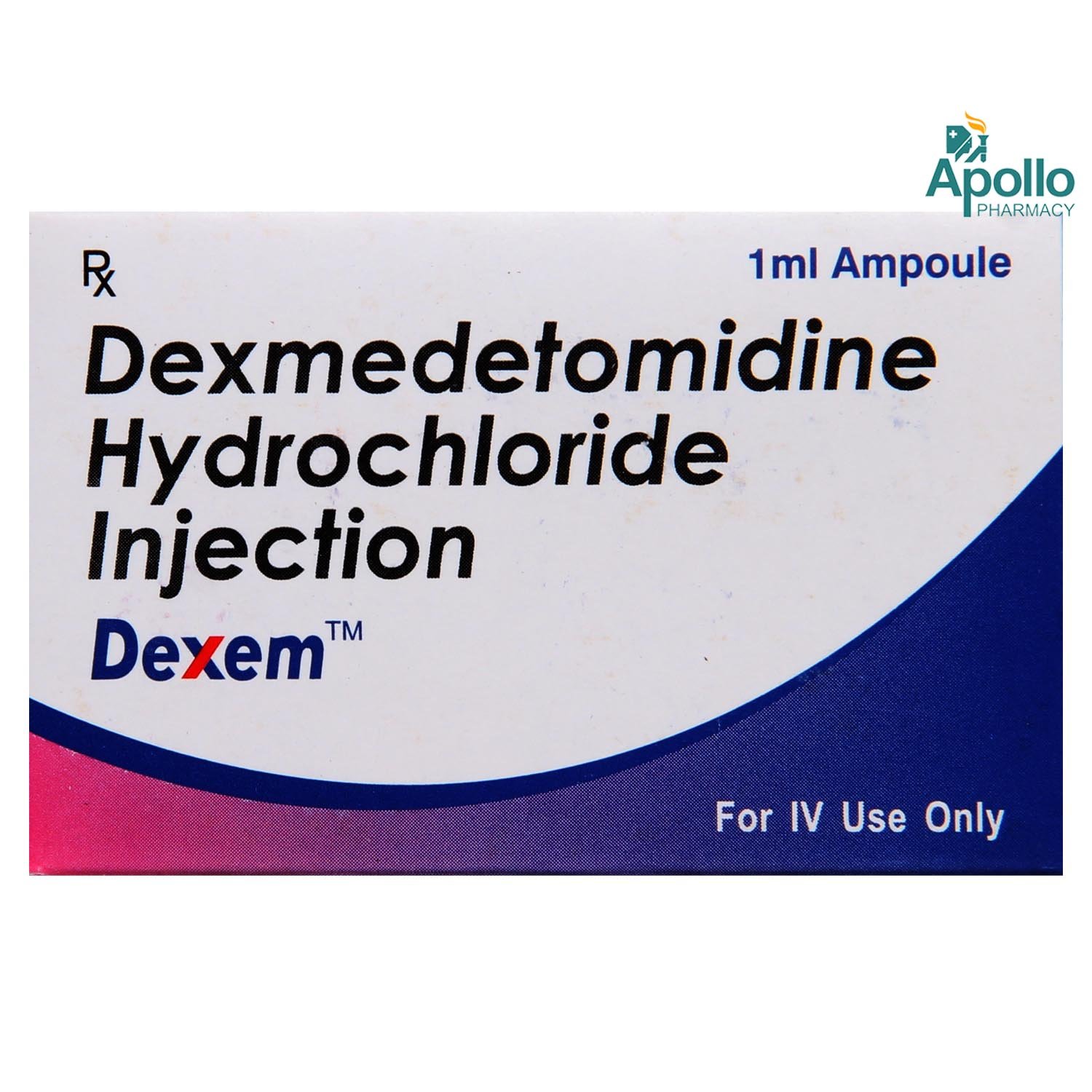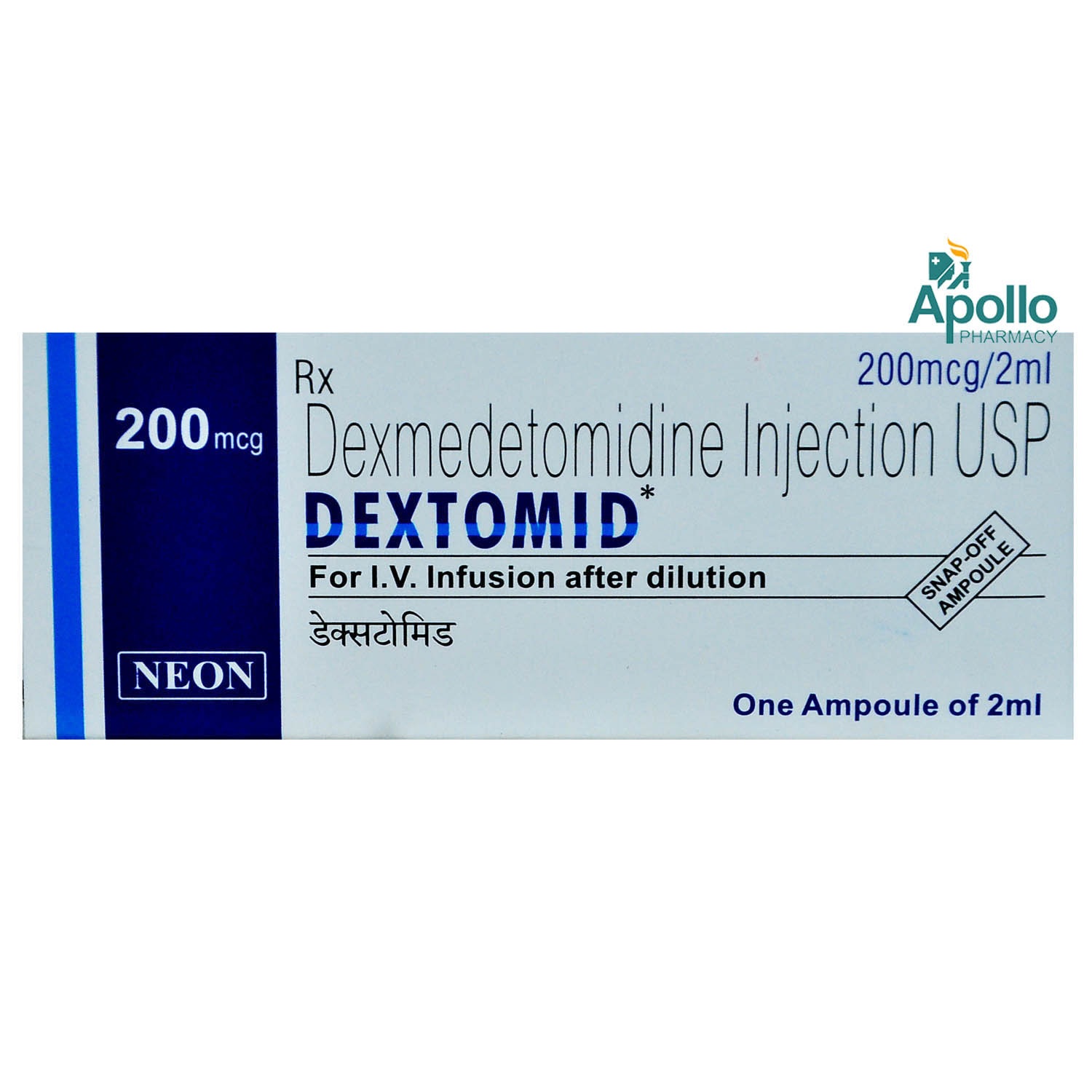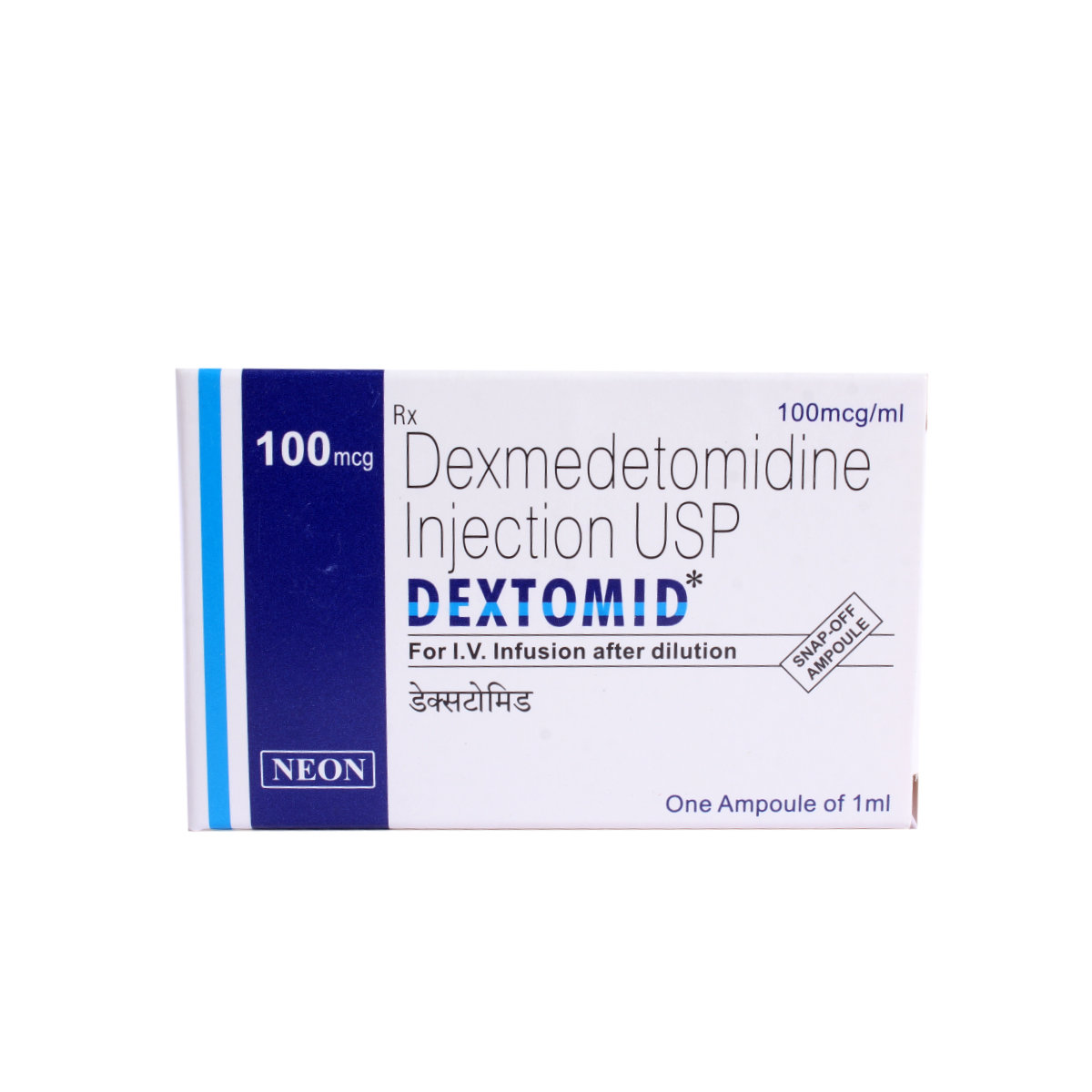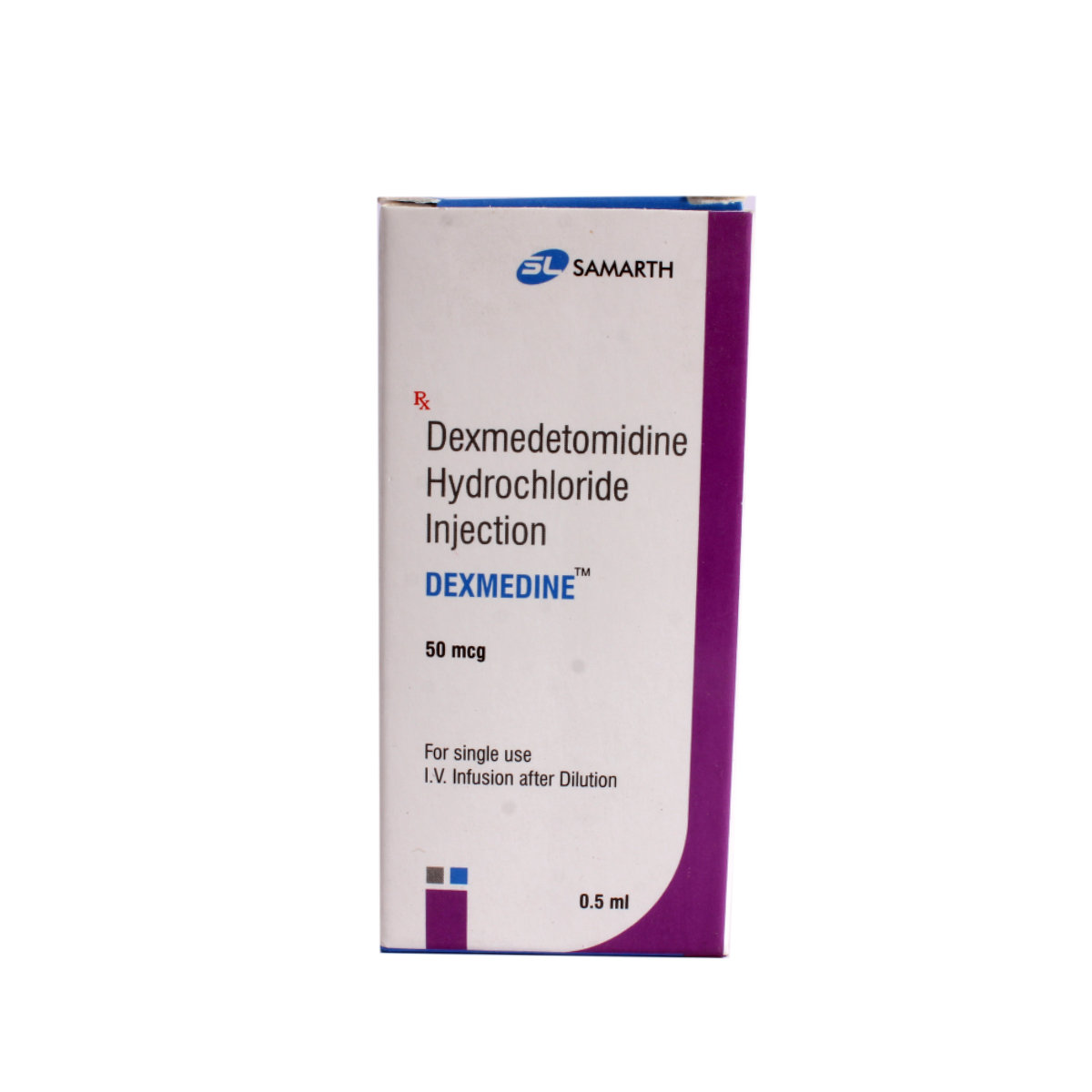Dexmedetomidine
About Dexmedetomidine
Dexmedetomidine belongs to the group of sedatives used to sedate patients in acute settings such as the ICU, during surgical procedures and in those who require a mechanical ventilator. Sedation is defined as a state of relaxation, drowsiness or sleep.
Dexmedetomidine contains Dexmedetomidine which works by inhibiting the release of an active neurotransmitter (nerve substance) called norepinephrine and subsequently blocks pain signals. Hence Dexmedetomidine brings on a sense of relaxation and numbness through massive pain relief.
Dexmedetomidine will be administered by a healthcare professional. Do not self-administer. Dexmedetomidine may cause certain common side effects such as a slow heart rate, a change in blood pressure and an alteration in breathing pattern. You are advised to talk to your doctor if these side effects persist.
It is advisable to inform the doctor if you are allergic to any of the components of Dexmedetomidine. Consult your doctor if you are pregnant, planning to get pregnant or if you are breastfeeding, as Dexmedetomidine should be used with caution in these states. Avoid driving or operating machinery as Dexmedetomidine causes sedation. Consult your doctor before consuming alcohol with Dexmedetomidine.
Uses of Dexmedetomidine
Medicinal Benefits
Dexmedetomidine is a sedative that is used for the purpose of sedation in acute settings such as the intensive care unit (ICU). Dexmedetomidine finds application in aiding anaesthesia before surgical procedures and is also used to relax patients on mechanical ventilation. Dexmedetomidine contains Dexmedetomidine. Dexmedetomidine blocks pain signals, so the brain doesn't perceive pain or sensation and hence, brings on a sense of numbness and anaesthesia.
Directions for Use
Storage
Side Effects of Dexmedetomidine
- Change in breathing pattern
- Slow pulse
- Fall in blood pressure
Drug Warnings
It is advisable to inform the doctor if you are allergic to any of the components of Dexmedetomidine. Keep your doctor informed if you suffer from any bleeding disorders, disorders of heart rhythm, hypotension (very low blood pressure), stroke, cardiovascular disorders, neurological problems or liver disease. Consult your doctor before taking alcohol with Dexmedetomidine. Inform the doctor if you are on anticoagulant (blood-thinner) therapy, sedatives, anaesthetics or any pain killers. Consult your doctor if you are pregnant, planning to get pregnant, or if you are breastfeeding as Dexmedetomidine should be used with caution in these states.
Drug Interactions
Drug-Drug Interactions: Dexmedetomidine may interact with sedatives (midazolam, propofol), opioid analgesics (morphine, codeine), and anaesthetics (sevoflurane, isoflurane).
Drug-Food Interactions: Dexmedetomidine may interact with alcohol.
Drug-Disease Interactions: Dexmedetomidine should be used with caution in patients with heart rhythm disorder, low blood pressure, stroke, abnormally slow heart rate, low blood volume, neurological disorder, and severe liver problems.
Drug-Drug Interactions Checker List:
Safety Advice

Alcohol
unsafeThere can be a reaction of alcohol with Dexmedetomidine. Use of Dexmedetomidine with alcohol is hence not recommended. Please consult your doctor if you have any concerns.

Pregnancy
cautionDexmedetomidine should be used with caution during pregnancy. Please consult your doctor if you have any concerns.

Breast Feeding
cautionDexmedetomidine should be used with caution during breastfeeding. Please consult your doctor if you have any concerns.

Driving
unsafeDexmedetomidine is used only in hospitalised patients. Avoid driving or operating machinery as Dexmedetomidine causes sedation.

Liver
cautionExercise caution before using Dexmedetomidine in case of liver conditions. Please consult your doctor to address any concerns.

Kidney
cautionExercise caution before using Dexmedetomidine in case of kidney problems. Please consult your doctor to address any concerns.

Children
unsafeDexmedetomidine is not recommended for use in children below 12 years of age. Please consult your physician if you have any concerns.
Habit Forming
Diet & Lifestyle Advise
- Invest in a balanced diet. Load up on lean meats, fruits, green leafy vegetables, nuts, oily fish etc.
- Cut back on alcohol as this can have an adverse effect on pain states as well as the quality of your sleep.
- Try meditation and deep breathing to reduce overall stress and pain.
- Stop smoking as smoking is known to worsen pain conditions.
- Engage in mild physical exercise daily and keep your body active.
Special Advise
- You will need to be monitored consistently after receiving Dexmedetomidine.
- Elderly people over the age of 65 may require dose adjustments. Discuss with your treating doctor in case of advanced age.
- Caution should be exercised before administering Dexmedetomidine with other vasodilatory drugs.
Patients Concern
Disease/Condition Glossary
Sedation: A state of sleep, relaxation or drowsiness brought on by an external substance such as a drug. Sedation is the alleviation of irritation, anxiety or agitation by administering a sedative drug. It is generally carried out to ease the process of a diagnostic procedure or surgery.
FAQs
Dexmedetomidine works by inhibiting the release of an active neurotransmitter (nerve substance) called norepinephrine and subsequently blocks pain signals.
Inform your doctor if you have high blood pressure or if you are taking blood pressure-lowering medicines as Dexmedetomidine may cause alterations in blood pressure.
Dexmedetomidine is not recommended for people with heart rhythm problems, and very low blood pressure that does not respond to treatment. Inform your doctor if you have heart problems, abnormally slow heart rate, or high/low blood pressure.
Dexmedetomidine may cause a slow heart rate. Inform your doctor if you have an abnormally slow heart rate as Dexmedetomidine may increase the risk of cardiac arrest.

